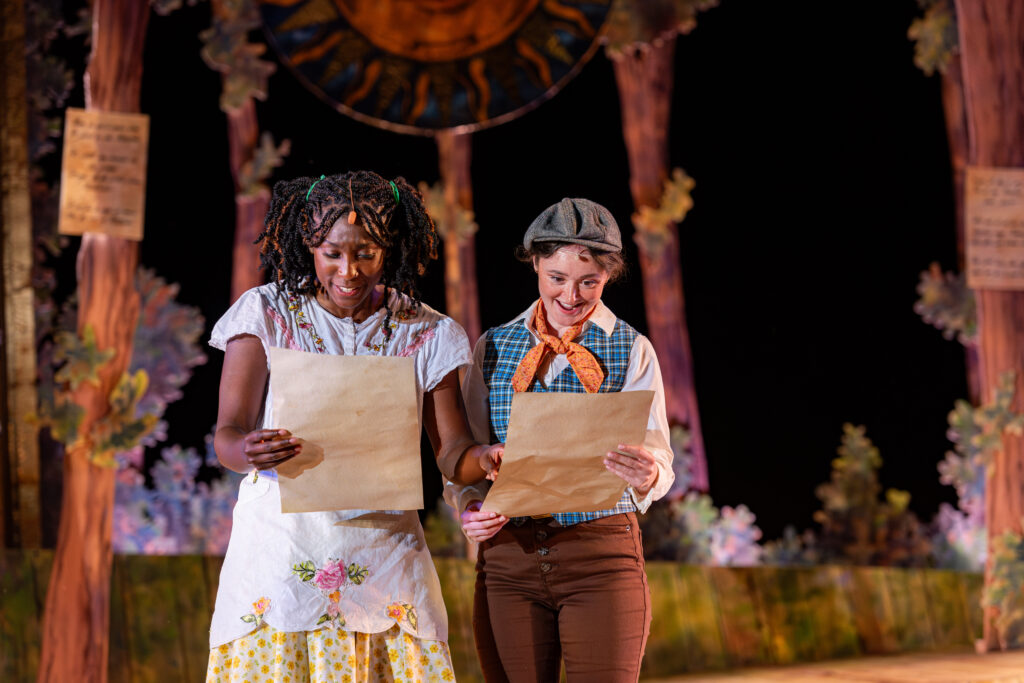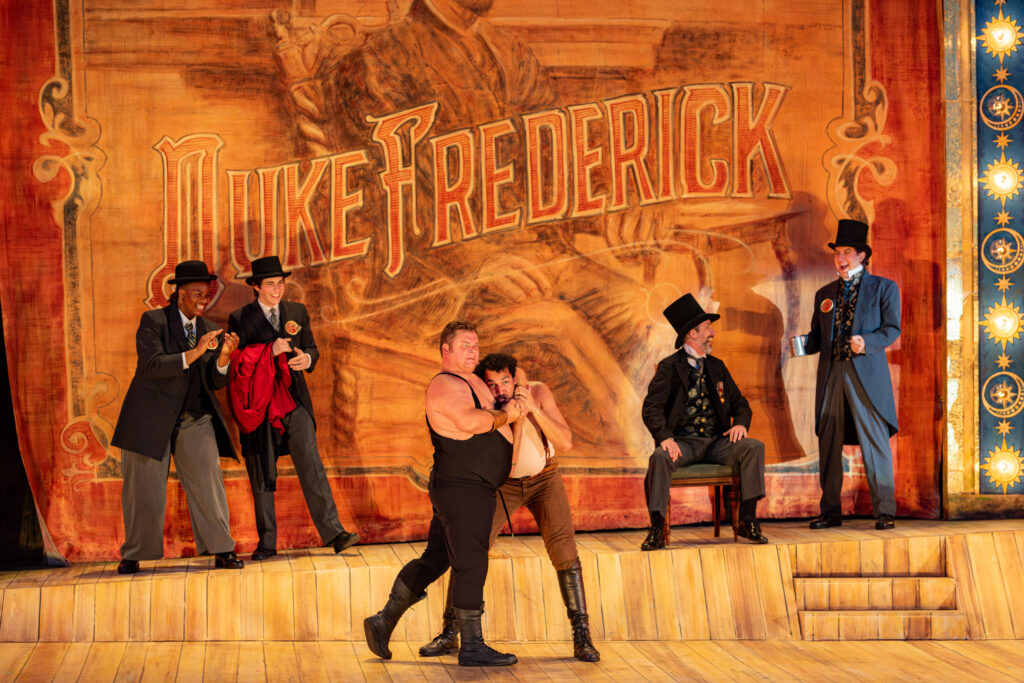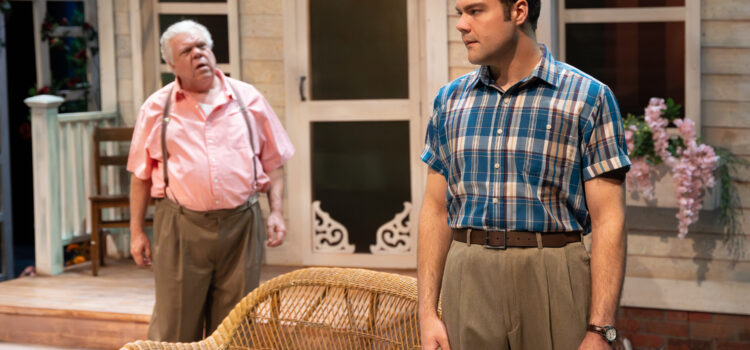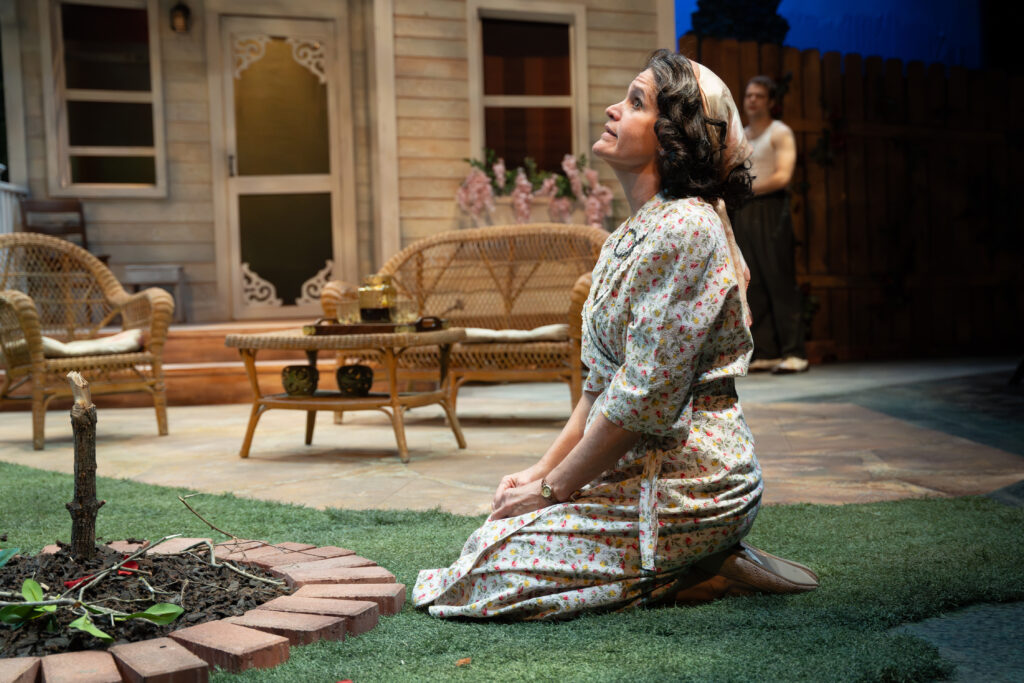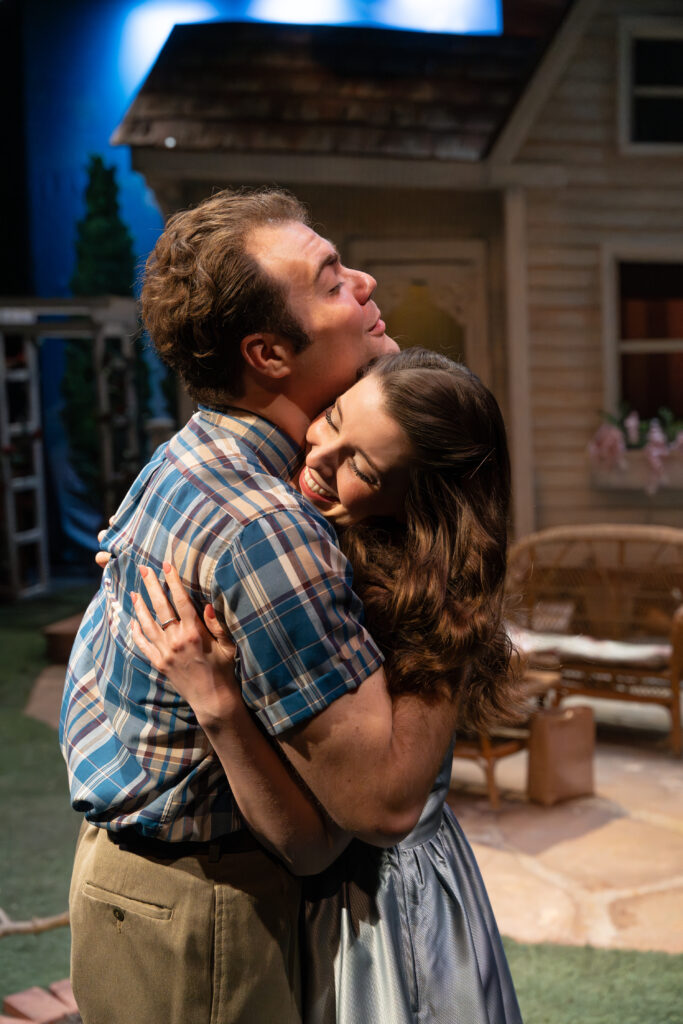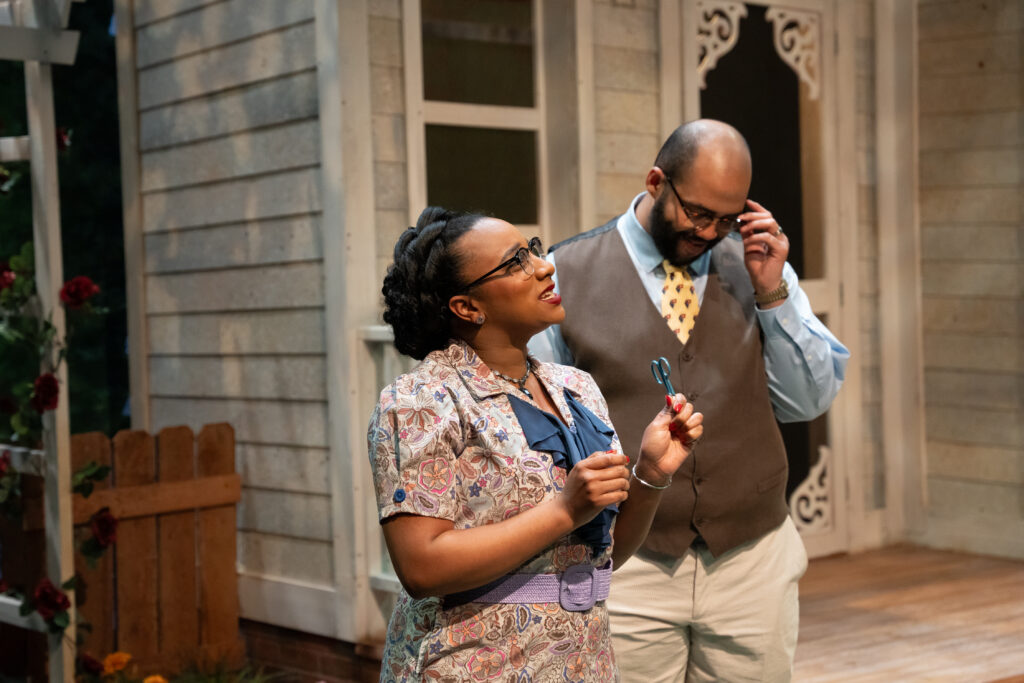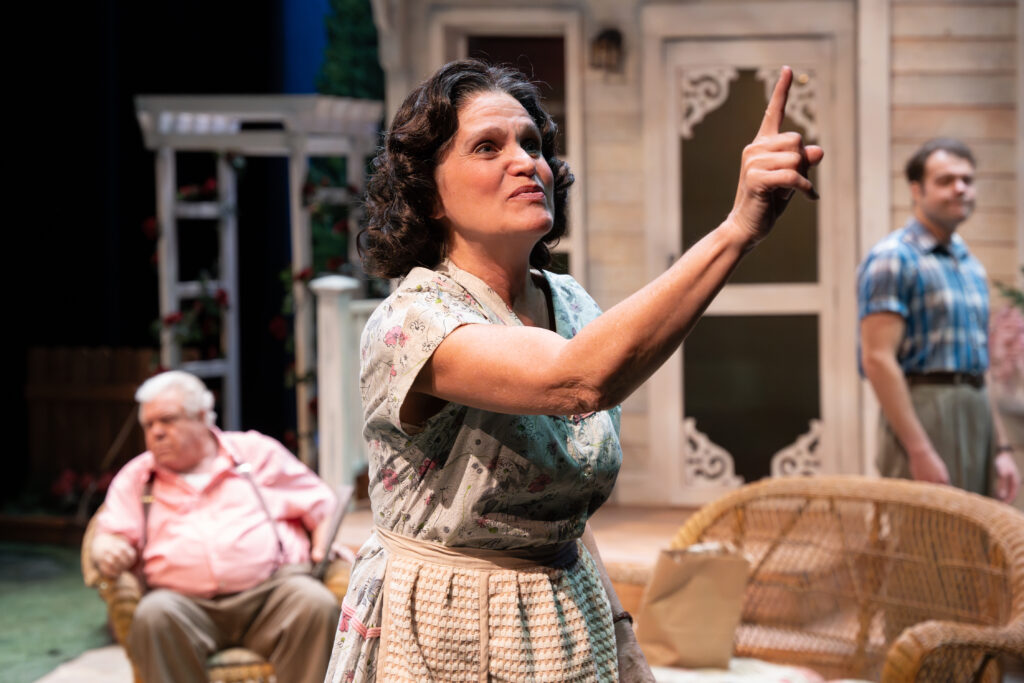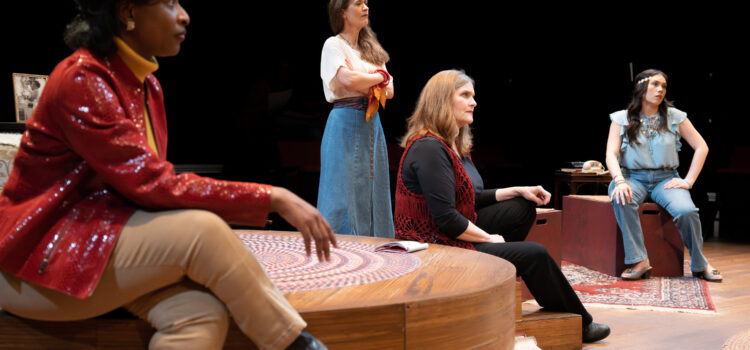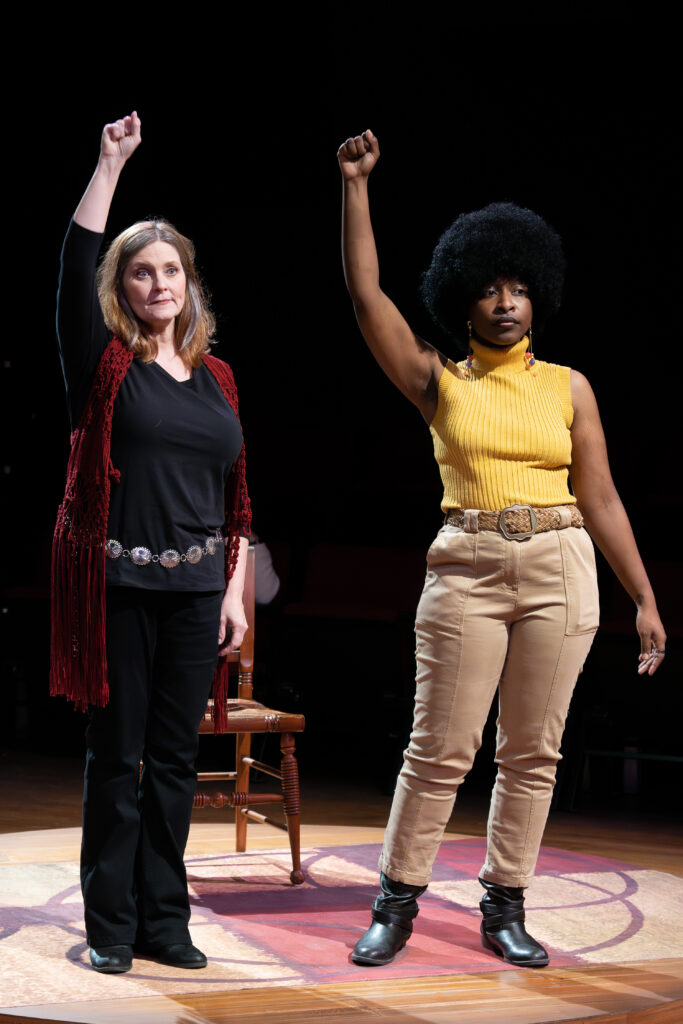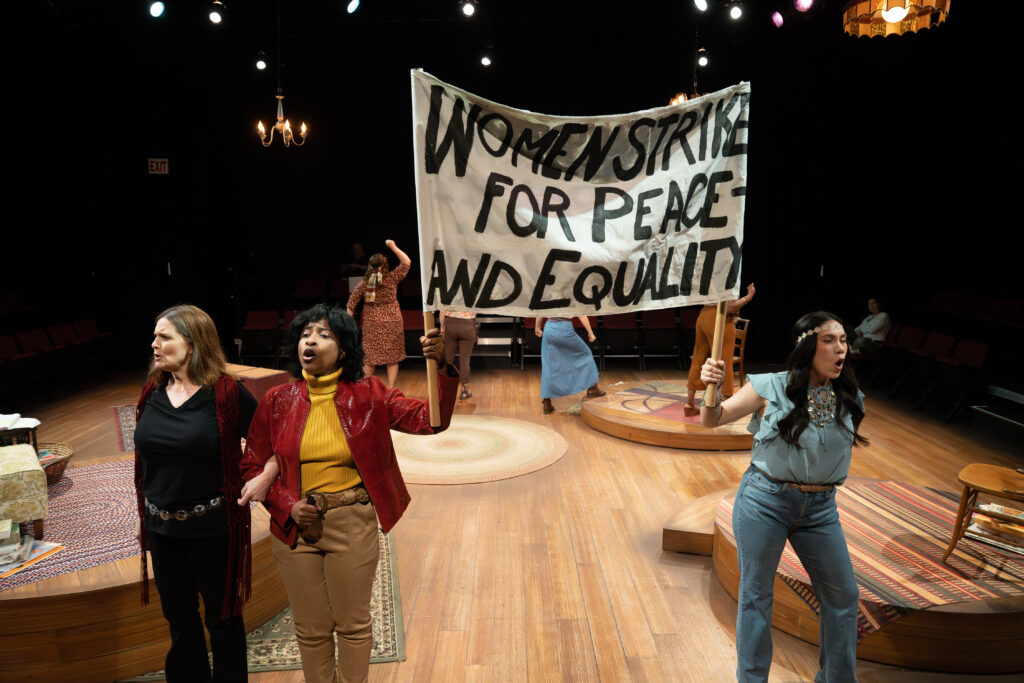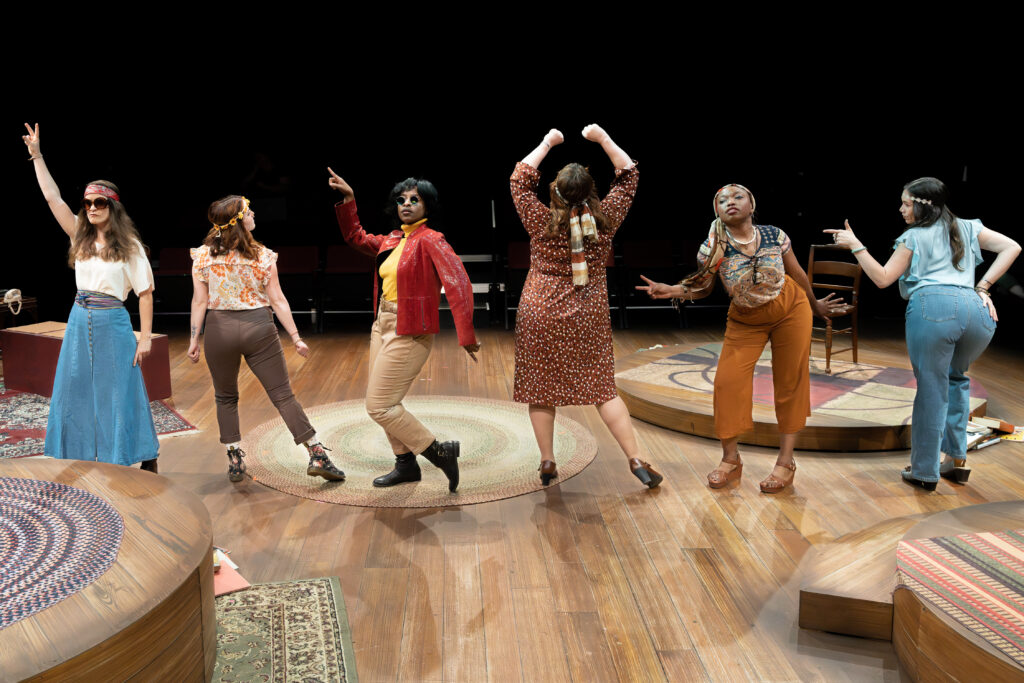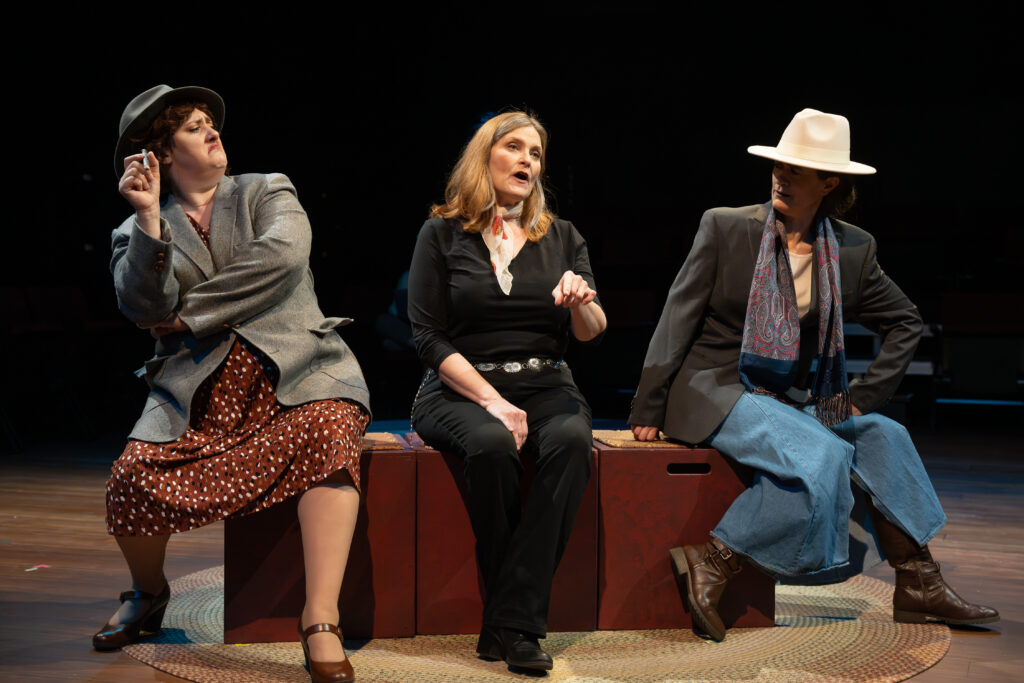By Lynn Venhaus
It really is a yard sale and a play rolled into one kooky experience. A Masha! Masha! Masha! mash-up of absurd comedy and history, “Romanov Family Yard Sale” is another unconventional offering from ERA (Equally Represented Arts) Theatre, always pushing whatever envelope they think needs a prod.
All tchotchkes must go so that these survivors, pushed out of power during the Russian Revolution, can flee abroad. Explained as a “purgation play told in three demonstrations,” we travel back in time to July 1919.
These chapters identify the quirky focus: “Capeetalism,” “The Church of the Great Babooshka,” and “Independence Day.” Life, as they knew it, is over, and their future is scary, given the recent past and unmoored present.
This takes place exactly one year after the last Russian Tsar, Nicholas II, was executed, along with his wife, Empress Alexandra, and their children – grand duchesses Anastasia, Maria, Olga and Tatiana, and only son Alexei, a hemophiliac.
Their distant cousins want to escape to the U.S., with hopes of American filmmakers publicizing their plight. Chrissy Watkins, as very serious Dody, and John Wolbers, as a determined Kirk, arrive with their video cameras, and receive an enthusiastic royal welcome.
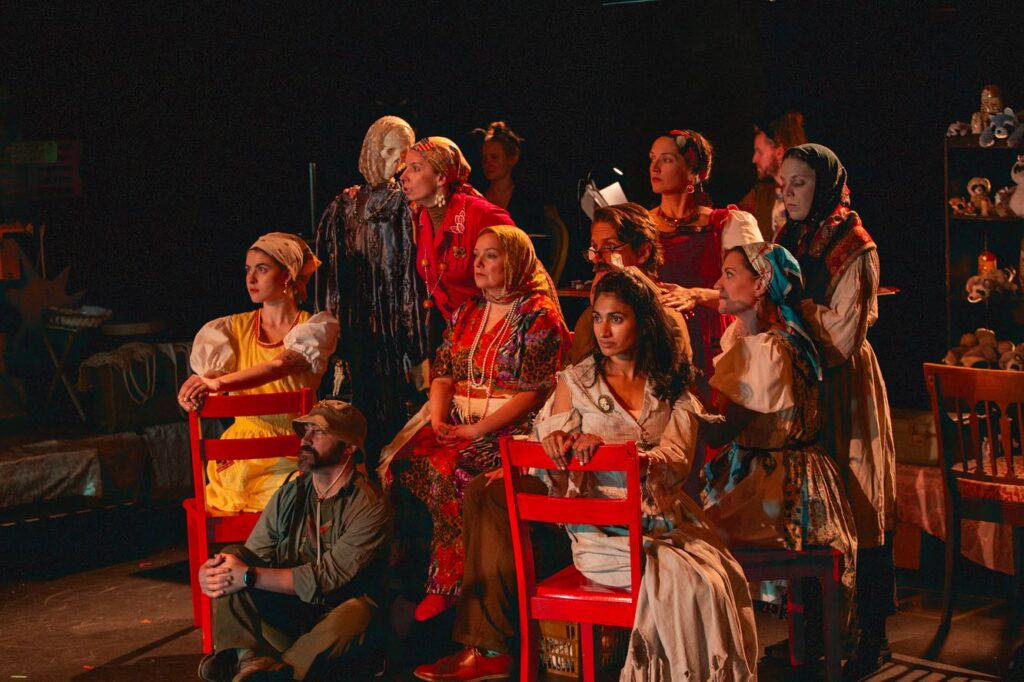
This part is fictionalized, but the House of Romanov really ruled imperial Russia from 1613 to 1917, until forced to abdicate and placed under house arrest by those Lenin-led Bolsheviks. That’s when the Iron Curtain came down as the Communist Party took over.
The play’s setting is in a former Tsar-sponsored theater wrecked by those revolutionaries. The loyalists warn us not to sit in a red chair, or we may be shot.
Frustrated by their predicament, they express themselves as people clinging to their old way of life. But they are also protective of each other, like families are.
You might feel like you are entering a reality TV zone. Prior to the performance, tables and racks are laden with goods that are later made available in the lobby. And the cast is already in character, hawking their wares and advising on what to do.
They are really pushing the ‘Baby Beans,” aka plush toy animals that look like the Beanie Babies popularized in the 1990s. There is no such Beanie Baby Bubble Burst in their world.

Using convincing thick Russian accents, aided by dialect coach Keating, an all-in repertory of regular ERA interpreters and other veterans dance, prance, bicker and sing “Take Me Out to the Ballgame” like they are putting on a pageant for their wannabe home in exile.
As part of this eccentric ensemble, they offer us bread, vodka shots, and Anastasia’s hand in marriage while trying to purge all their possessions.
They will collect tickets, and people do walk out with stuff (they even have a basket of plastic bags to carry purchases). Need a VHS copy of “Waterworld” or a well-worn romance novel?
It is not a prerequisite to brush up on Russian history to understand the story, but if you recall a basic outline, and recognize a Faberge egg, you’ll find Courtney Bailey’s clever original play even more amusing. And while the acting is mostly for laughs, their characters’ despair does peek through.
Adam Flores offers a touch of poignancy as bereaved Cousin Alexi, waltzing with his deceased wife, Cousin Katrina (a skeleton often guided by Bailey)..
Lucy Cashion, director and ERA mastermind, is adept at making classic literature structures fresh with unique twists and divergent perspectives.
She keeps the characters swirling so the action is swift, although a tad chaotic at times with 15 people on stage. Resourceful, she also designed the set and the sound and was the video editor.
She last tackled Russia in a Chekhov-inspired “Moscow” drinking game and one-act play produced for the St. Louis Fringe Festival in 2015, and again as a whimsical red-soaked Zoom play fundraiser in 2020.
Bailey, who wrote the imaginative “Bronte Sister House Party” for SATE in 2022, Best New Play Award from the St. Louis Theater Circle, has created another fertile playground for her latest effort.
Last year, the pair humorously combined the John Hughes Brat Pack comedy “The Breakfast Club” with a Bertold Brecht pastiche – and nod to Cold War spies in an East German political satire called “The Brechtfast Club.”
Inspired by Southern yard sales and pop culture touchstones, whip-smart Bailey has inserted references to the 1975 “Grey Gardens” documentary through very funny portrayals by Rachel Tibbetts as Big Yelena and Ellie Schwetye as Little Yelena, a perfect pairing.
She also credits the 1997 Dreamworks animated feature “Anastasia,” the “Independence Day” blockbuster movie from 1996, and Episode #822 of NPR’s “This American Life.” And apparently, Kate Bush’s 1980 song (also misspelled title) “Babooshka” was an influence.

The spry large cast, some of whom were in “The Brechtfast Club” and The Midnight Company’s recent “Spirits to Enforce” that Cashion directed, includes characters you might recognize from their historical significance.
For instance, always hilarious Cassidy Flynn is Rasputin. He makes a dramatic entrance, in a stringy raven-haired wig with a shock of a silver streak, and black garb, as the controversial figure – charlatan or mystic, visionary and faith healer?
His sidekick, Pigbat, is played in disguise by Alicen Moser. I did not fully understand that character’s purpose, possibly only to add sight gags as she flaps her white Russian wings?
Ashwini Arora has fun toying with the public mystery of princess Anastasia – who may be dead or may be an imposter, or who might actually have escaped. That tale has been the subject of movies, plays and musicals, so the ERA collaborators incorporate the legend and surrounding confusion.
Three strong actresses play sisters named Masha like they are part of the Brady Bunch (of course!) – Celeste Gardner, Kristen Strom, and Maggie Conroy are engaging maidens, who can be kinda bitchy too, moving in unison.
They are outfitted in distinctive peasant garb, which displays the fine handiwork of costume designer Marcy Wiegert.
Exaggerating stereotypes, Miranda Jagels Felix is a hunched over and very worried Aunt Babooshka, wearing the traditional kerchief tied under the chin, and deep-voiced Anthony Kramer looks like a member of the politburo with a tweedy jacket and a thick mustache (that had trouble staying on) as Uncle Boris. He is obsessed with eggs, a running joke.
Multi-hyphenate Joe Taylor is this production’s Most Valuable Player, as he not only composed an interesting original cinematic-like score, but also plays the keyboard, and performed as “A Choir of Raccoons.”
He was the cinematographer for a black-and-white old-timey film called “The Last of the Romanovs” that is played at the conclusion. And added AV technician and music director to his chores, too.
As much as I enjoy watching this collective perform, and I consider their “Trash Macbeth” in 2016 one of the all-time treasures in local theatre, this play is too stretched out and would work better condensed into one act, not two.

A little nipping and tucking would heighten the ‘oomph’ that it achieves intermittently. As funny as Flynn is onstage, and the devilish Rasputin is in his wheelhouse, the middle “Church of the Great Babooshka” segment slumped when it went off on religious tangents, especially the communion.
Admittedly, the wedding ceremony, and plucking a game groom from the audience, was confidently handled, and the revelry was fun. Time for a daffy dance break!
The audience seemed to lean in to all the goofiness that ensues, even if it wasn’t always clear what was happening in this universe that teetered between fantasy and reality.
When you have that much assembled talent, it’s hard to find everyone a moment or two to shine, but they sure had a blast together as a tight-knit unit. These are swell collaborators who make the tiny but mighty ERA standout in the local landscape.
The show is co-produced by Cashion, Felix, Will Bonfiglio, and Spencer Lawton, who also effectively stage-managed. They are fully committed to surprising patrons and making sure their presentations offer something different.
Crisp work by Emma Glose as tech director and Denisse Chavez as lighting designer is also notable.
With their avant-garde experimental nature, inventive ERA always sparks ideas, and they gather the talent to pull off even the most peculiar material. No matter what, they are conversation starters.

ERA Theatre Presents “Romanov Family Yard Sale” from July 4 through July 20, Thursdays through Sundays, at 8 p.m. at the Kranzberg Arts Center (Blackbox theatre), 501 Grand Blvd., St. Louis, MO 63104. It is recommended for audiences age 21+. For more information, visit www.eratheatre.org, For tickets, metrotix.com.

Lynn (Zipfel) Venhaus has had a continuous byline in St. Louis metro region publications since 1978. She writes features and news for Belleville News-Democrat and contributes to St. Louis magazine and other publications.
She is a Rotten Tomatoes-approved film critic, currently reviews films for Webster-Kirkwood Times and KTRS Radio, covers entertainment for PopLifeSTL.com and co-hosts podcast PopLifeSTL.com…Presents.
She is a member of Critics Choice Association, where she serves on the women’s and marketing committees; Alliance of Women Film Journalists; and on the board of the St. Louis Film Critics Association. She is a founding and board member of the St. Louis Theater Circle.
She is retired from teaching journalism/media as an adjunct college instructor.





